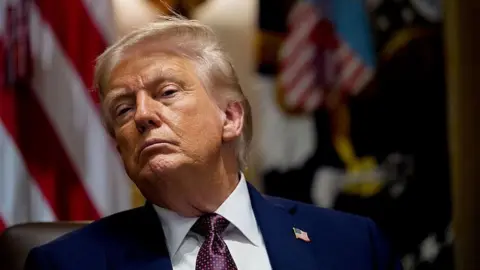President Trump is set to host a significant meeting at the White House on Wednesday with leaders from Gabon, Guinea-Bissau, Liberia, Mauritania, and Senegal, focusing on enhancing economic investment in Africa. This gathering marks an effort by the Trump administration to redefine trade strategies towards the continent, aligning particularly with the desire to secure access to critical minerals and mitigate China's expanding influence in the region.
The event follows Mr. Trump’s previous engagement, where he oversaw the signing of a peace agreement aimed at resolving ongoing conflicts in the Democratic Republic of Congo. White House officials have noted that this meeting emphasizes the potential for fruitful economic collaborations with the represented countries, with opportunities for commercial alliances being a priority for the U.S. administration.
However, this push for investment comes at a time when the Trump administration's decision to cut back funding through the United States Agency for International Development (USAID) has raised concerns among African nations. For instance, aid to Liberia previously comprised 2.6 percent of its gross national income—among the highest in the world—highlighting the significant impact of reduced support.
In addition, a State Department memo suggests that the administration may expand its travel ban to include four of the five nations represented in the meeting, with only Guinea-Bissau currently exempt. This potential policy shift adds complexity to the tripartite nature of diplomacy, investment, and ongoing humanitarian needs.
Ambassador Troy D. Fitrell of the State Department articulated the administration's strategy, asserting a commitment to prioritizing commercial diplomacy within its foreign relations agenda. Over the course of Trump's second term, the administration claims to have facilitated over 70 commercial agreements focused on infrastructure, clean energy, and technology across the African continent.
As the discourse around the U.S.-Africa relationship evolves, Wednesday's discussions may set the stage for a new chapter, merging economic interests with geopolitical strategy while navigating the implications of reduced aid on partnerships with African nations.





















